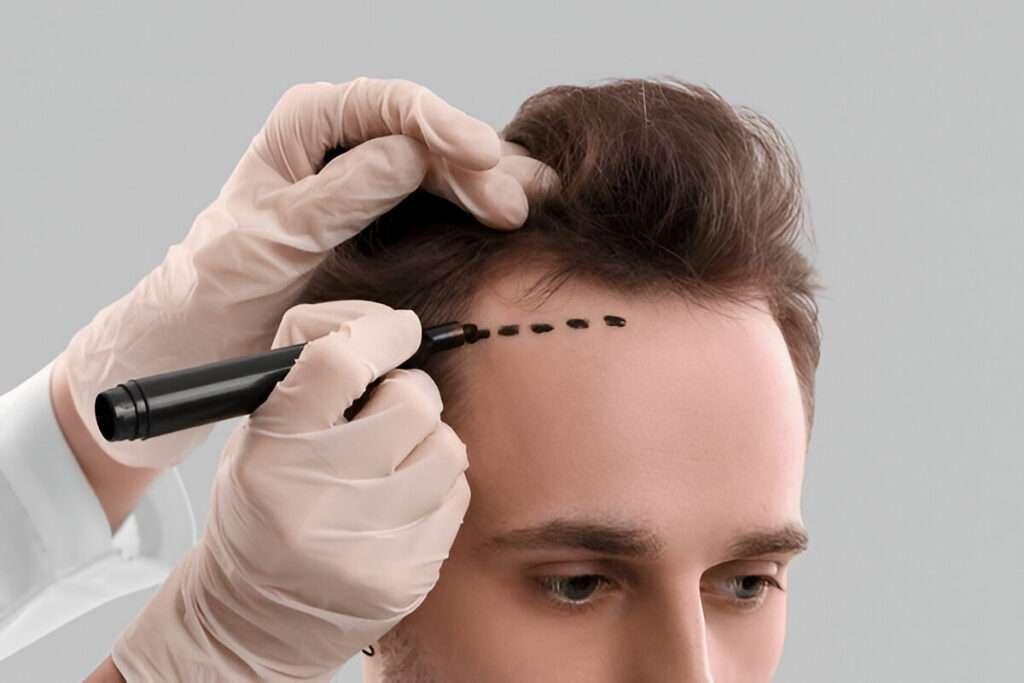Hair transplants are one of the most effective treatments for permanent hair restoration. Clinics across the UK, including those offering hair transplant Bristol services, see patients every day who hope to regain their confidence. But there’s one factor that often decides the outcome of surgery: genetics.
Your genes not only determine how you lose hair but also influence how successful your transplant will be. Understanding this link can help you set realistic expectations and make informed choices.
How Genetics Influence Hair Loss
Hair loss in men and women is often genetic. Male pattern baldness and female pattern thinning are passed down through families. If your father or grandfather experienced hair loss, you may likely follow the same path.
Genetics decides which follicles are sensitive to hormones like DHT, the leading cause of patterned hair loss. Once a follicle is affected, it gradually shrinks until it no longer produces visible hair. Patients exploring hair transplant procedures in Bristol often undergo assessments to confirm the genetic cause of their thinning.
Why Donor Hair Is Different
The success of a transplant depends on the quality of donor hair. Follicles at the back and sides of the scalp are usually resistant to balding. DHT has less influence on these areas and continues to grow throughout life.
When surgeons move these follicles into thinning or bald areas, they retain their resistance. This is why transplanted hair often lasts permanently. Clinics offering hair transplant treatments in Bristol continually thoroughly assess donor areas before recommending surgery.
Genetic Stability Matters
Not all patients are ready for surgery right away. If your hair loss pattern is still developing, a transplant may not provide long-term satisfaction. Genetics can make your loss progressive, meaning untreated areas continue to thin.
Surgeons often advise younger patients to wait until their pattern stabilises. This avoids the risk of creating an unnatural look where transplanted hair remains, but the surrounding areas thin further. Patients who attend hair transplant consultations in Bristol are usually advised on timing and future planning.
How Genetics Affects Density
Genetics also determines the density of your donor area. Some people have naturally thicker donor hair, which allows surgeons to extract more follicles without noticeable thinning. Others have finer or sparser donor hair, which may limit the density achieved in one session.
A skilled surgeon can make the most of your genetic potential by carefully planning placement. This ensures a balanced and natural look. Clinics providing hair transplant procedures in Bristol often use advanced tools to measure density before surgery.
Can Genetics Limit Transplant Success?
Yes, in some cases, genetics can limit what surgery can achieve. Patients with widespread thinning and poor donor supply may not get full coverage. Similarly, individuals with aggressive balding patterns may require multiple sessions over time.
This does not mean transplants are ineffective. It simply means expectations must match genetic reality. Surgeons in the UK, including those offering hair transplant Bristol services, often combine surgery with medical treatments like finasteride or minoxidil to slow further loss.
Combining Genetics and Modern Treatments
The good news is that modern medicine can work alongside genetics. PRP and PRF therapies can stimulate weaker follicles, while medications slow down genetic loss. When combined with a transplant, these approaches maximise results.
Patients who understand their genetic background are better prepared for the journey. With proper care and planning, even those with strong genetic tendencies towards baldness can enjoy long-lasting improvements. Clinics specialising in hair transplant treatments in Bristol often create tailored plans that combine surgical and non-surgical methods.
Emotional Side of Genetic Hair Loss
Genetic hair loss can feel frustrating because it is outside your control. Many people feel self-conscious or less confident as their hair thins. Choosing a transplant is not just about appearance but about regaining that sense of self.
By working with experienced surgeons, patients can turn genetic disadvantages into opportunities for lasting change. Those who undergo a hair transplant procedure often describe a boost in both confidence and quality of life.
Final Thoughts
Genetics plays a central role in both hair loss and hair transplant success. Your family history influences how your hair thins and how donor follicles behave after surgery. While this can create limitations, it also explains why transplants often last a lifetime.
If you are considering treatment, whether in London, Manchester, or exploring hair transplant clinics in Bristol, start with a thorough consultation. A skilled surgeon can evaluate your genetics, donor supply, and long-term needs. With the right plan, you can enjoy natural results that stand the test of time.
